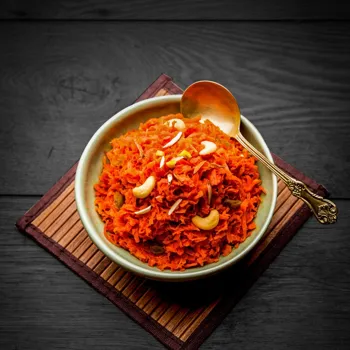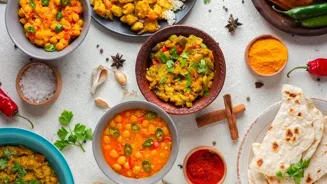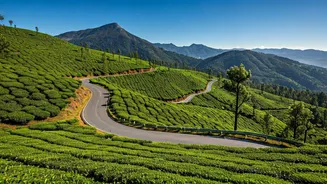Unveiling the Enigmatic History of Biryani: A Culinary Journey of Cultural Fusion. Dive into the origins and evolution of India's iconic dish, a fusion of flavors transcending time and borders. Discover
the rich tapestry of biryani's past in this captivating exploration
Biryani, a name that conjures images of fragrant rice, aromatic spices, and a symphony of flavors, holds a special place in the hearts (and stomachs) of Indians.

It’s more than just a dish; it’s a culinary legacy, a celebration food, and a testament to the rich cultural exchange that has shaped India’s gastronomy. But where did this beloved dish truly come from?
Unearthing biryani's past is like sifting through layers of history, with each grain of rice whispering tales of emperors, trade routes, and culinary innovation. While pinpointing a single origin is difficult, the journey of biryani is a fascinating exploration of cultural fusion.
Biryani's Persian roots shaped by Indian culinary influences
Many food historians believe that biryani's roots lie in Persia. The Persian word "birinj" means rice, and it's believed that early forms of biryani were brought to India by Persian traders and travelers. It's important to remember that food travels with people.
As kingdoms expanded and trade routes flourished, so did culinary influences. What might have started as a simple rice-based dish in Persia likely underwent significant transformations upon arriving on the Indian subcontinent, adapting to local ingredients, cooking styles, and palates.
One can easily notice small influences, it can be clearly seen though.
The Mughal Empire refined biryani into a royal dish
The Mughal Empire, which ruled over much of India for centuries, played a crucial role in popularizing and refining biryani. The Mughals were known for their sophisticated tastes and patronage of the arts, including the culinary arts.
They brought with them skilled cooks and a wealth of ingredients from Central Asia, further enriching the Indian culinary landscape. During the Mughal era, biryani evolved from a simple traveler's meal to a dish fit for royalty.
Elaborate cooking techniques were developed, and exotic spices were incorporated to create a richer, more complex flavor profile. In those times also, this dish was known as the royal dish.
Regional biryanis reflect India's diverse culinary traditions with unique flavors and ingredients
Different regions of India developed their own unique styles of biryani, reflecting local ingredients and culinary preferences. In Lucknow, the Awadhi biryani is known for its delicate aroma and slow-cooked rice.
In Hyderabad, the Hyderabadi biryani is characterized by its rich, spicy flavor and the use of both "kachi" (raw) and "pakki" (cooked) styles of layering the ingredients. Kolkata’s biryani is quite distinct, often featuring potatoes alongside the rice and meat, that makes it unique to the region.
Each regional variation tells a story of local adaptation and culinary innovation, showcasing the diversity of Indian cuisine.
Evolution of biryani as a cultural icon reflecting history and diversity
While the exact historical timeline of biryani is debated, its evolution from a Persian rice dish to an Indian culinary icon is undeniable. The dish has absorbed influences from various cultures, evolving into the diverse and delicious versions we enjoy today.
It's a reminder that food is not static but rather a dynamic reflection of history, migration, and cultural exchange. Biryani is more than just a meal; it's a symbol of India's culinary heritage and its ability to embrace and transform influences from around the world.
And it will be difficult to replace this dish as this symbolizes much more than that.
Biryani: a culinary journey connecting cultures and memories
So, next time you savor a plate of biryani, remember that you are partaking in a culinary tradition that spans centuries and continents. Appreciate the intricate flavors, the aromatic spices, and the historical journey that has brought this beloved dish to your plate.
From its humble beginnings to its royal refinement, biryani's story is a testament to the power of food to connect cultures and create lasting culinary memories. And the cultural memories will always be cherished in years to come by various individuals across the continent.














